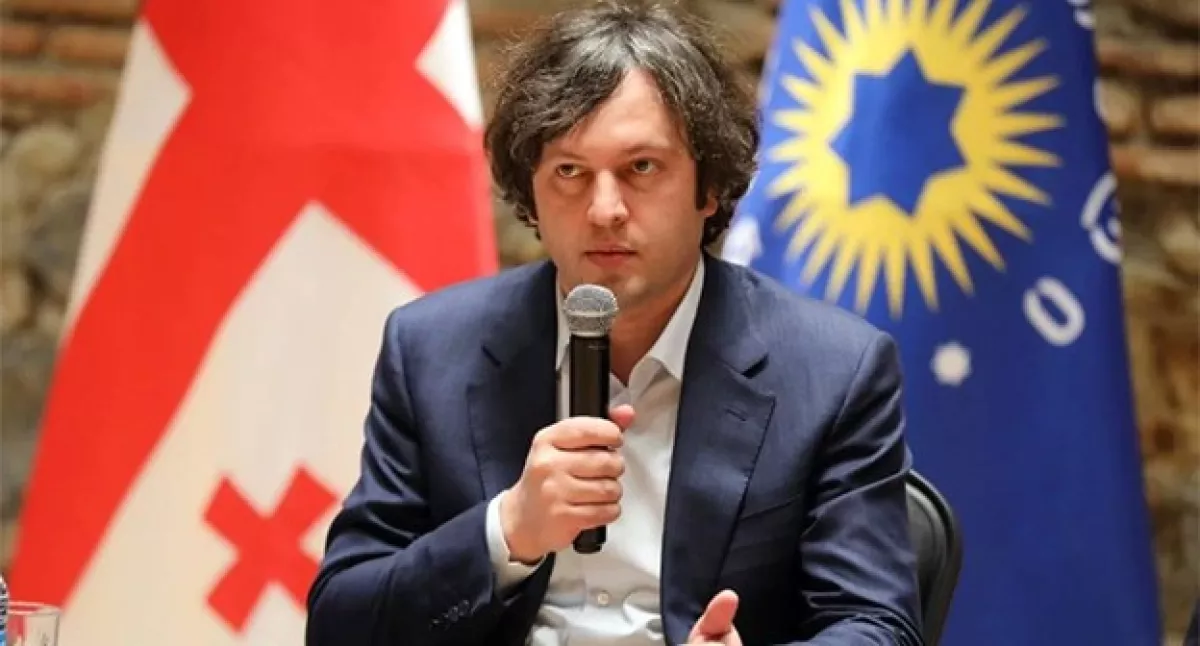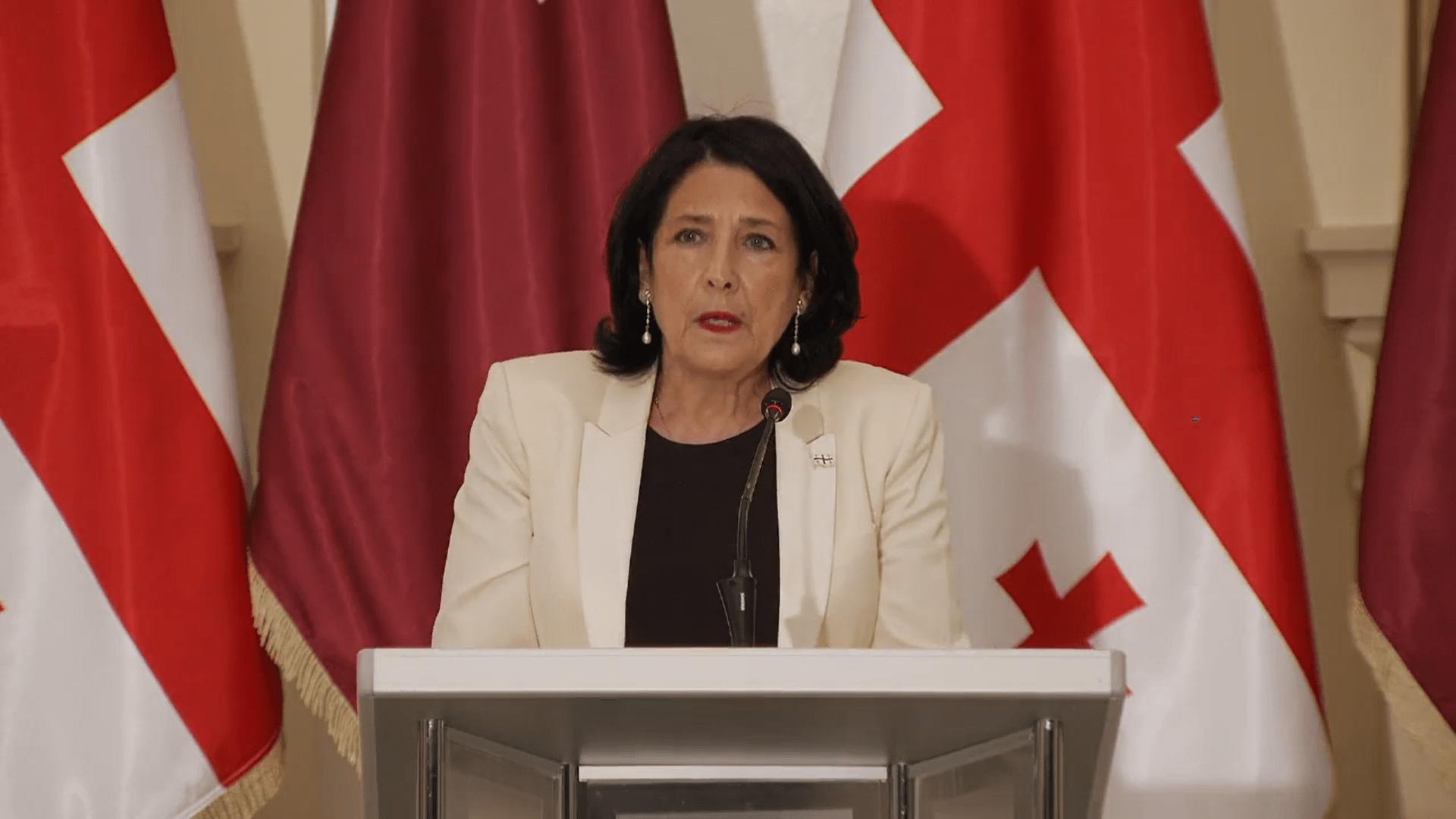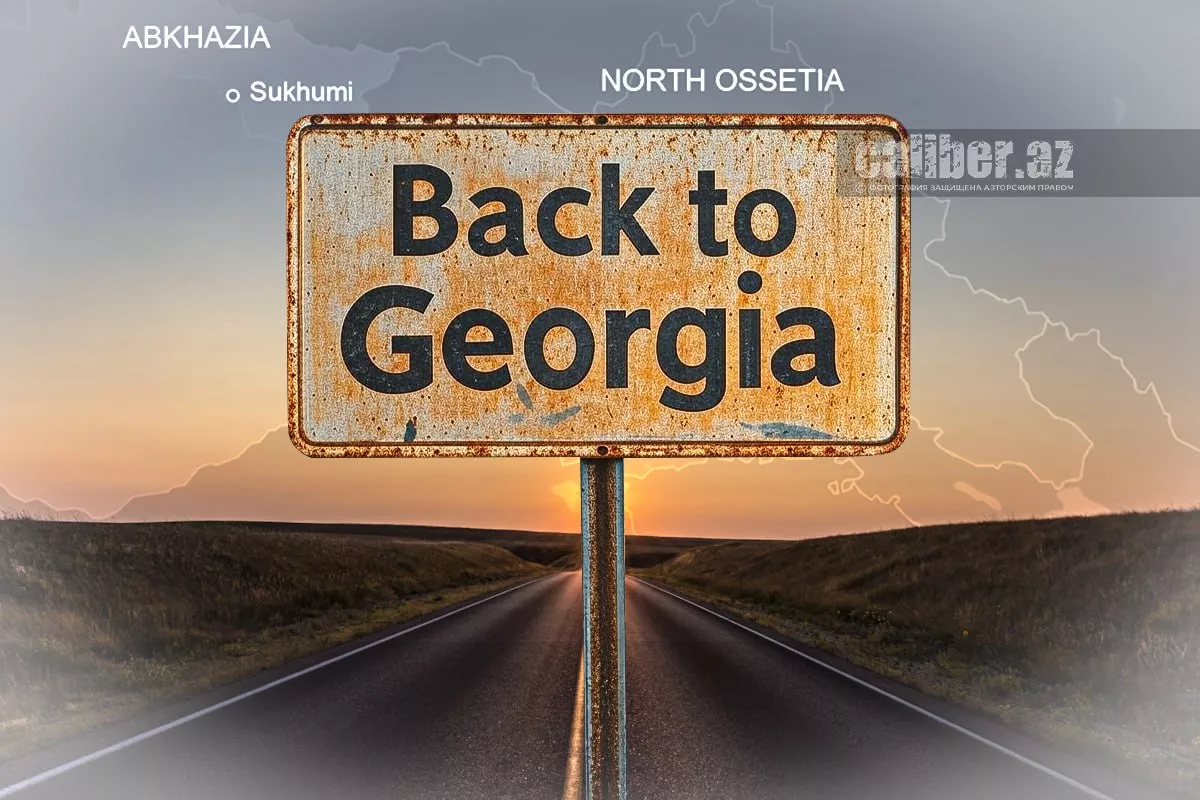Georgia against external pressure Protests and geopolitical prospects
Another attempt by the West and the pro-Western opposition to organize a "Maidan-like" coup in Georgia, timed with the election of a new president, has failed. The Georgian authorities and law enforcement, by swiftly neutralizing some of the protest organizers, managed to steer the demonstrations back to a relatively "peaceful" course, causing them to gradually fade away once again.
On the evening of December 14, the day of the election of Georgia’s new president, Mikheil Kavelashvili, the authorities decided not to organize a children's celebration and light the Christmas tree on Rustaveli Avenue due to the presence of protesters. However, two days later, such an event was held without any major issues. By that time, the protests had significantly decreased, and on the evening of December 16, Tbilisi saw the lighting of the Christmas tree and street decorations. The following day, December 17, the opposition's protests were even smaller in number.
As Prime Minister Irakli Kobakhidze noted, the Georgian authorities did everything possible to ensure that the scenario that unfolded in Ukraine would not be repeated in Georgia. "This is exactly what we have been working on, especially over the past three years. We did everything to prevent the scenario that occurred in Ukraine from happening in Georgia. It all started in 2013 with the 'Maidan,' followed by the first war just days after the end of the 'Maidan.' Then came the second war, and today our friendly Ukraine has been destroyed, with about a quarter of the population either leaving the country or becoming internally displaced persons. Hundreds of thousands of Ukrainians have died. Georgian society is more experienced, and with its support, we were able to avoid major threats to Georgia and, most importantly, avoid war," Irakli Kobakhidze stated.

However, the danger of destabilization in Georgia has not disappeared. It is worth noting that the opposition, after the parliamentary elections on October 26, has already attempted to ignite a "Maidan" at least twice, with the most recent attempt involving violent confrontation. It is uncertain whether the opposition and President Salome Zourabichvili will make another attempt, which could very well be timed to coincide with the inauguration of the new president on December 29.
The outgoing president, Salome Zourabichvili, who has declared herself the "only legitimate authority," refuses to recognize the legitimacy of the new president's election or the new parliament. Along with the opposition, she continues to demand new elections under external control, threatening bloodshed if this demand is not met.

"Zourabichvili stated that the only peaceful path for Georgia is new elections. In this way, she threatened the majority of the population of Georgia with bloodshed if they did not renounce the choice made on October 26. Throughout our independence, we have seen many bad things, but for the first time, we are witnessing the current president of Georgia threatening the population with bloodshed," said the Speaker of the Parliament of Georgia, Shalva Papuashvili.
The opposition and Zourabichvili still hope for external pressure on the Georgian authorities. However, the "harsh sanctions" that the European Union threatened Georgia with for its "disobedience" have not been particularly painful. Recently, the European Union threatened to cancel the visa-free regime for all Georgian citizens, but now the EU plans to suspend the visa-free regime only for holders of diplomatic passports. This decision, made on December 16 at a special meeting of the EU Foreign Ministers Council, was announced by the EU High Representative for Foreign Affairs and Security Policy, Kaja Kallas, who stated that the European Commission would make a corresponding proposal to EU member states in the coming week, which would then need to be approved. Diplomatic passports are held by only a few hundred people (government members, diplomats, senior officials from ministries and agencies), so this decision, which still needs to be approved, will not affect the majority of Georgian citizens.
"Nothing special. The only negative issue they have on the table is the introduction of visa restrictions on diplomatic passports, and even that is after a certain period. Of course, this is an extremely unfriendly, anti-Georgian step. We hope that, in the end, specific politicians and bureaucrats in the EU will change their positions. We hope that certain changes will occur in EU policy, especially after January 20. Everything else can wait," commented Georgian Prime Minister Irakli Kobakhidze on the decision regarding diplomatic passports, hinting that after the inauguration of the new U.S. president, Donald Trump, scheduled for January 20, 2025, much could change in a way that benefits Georgia. Even now, Hungary and Slovakia are opposing the introduction of EU sanctions against Georgia.
On December 18, the European Parliament gave a platform to Salome Zourabichvili, who reiterated her ultimatums to the legitimate Georgian authorities regarding the holding of new elections. Although the press release issued by the European Parliament ahead of Zurabishvili's speech stated that "Ms Zourabichvili’s presidential term is due to end on 29 December, with the new Georgian parliament having recently appointed her successor Mikheil Kavelashvili," it is still possible that the West will not push for a dual power structure in Georgia.
To prevent such a scenario, it is not enough to simply expel Zourabichvili from the presidential residence in Tbilisi after December 29. It is crucial for the Georgian government to prevent new provocations and destructive actions by the outgoing president with the help of external "handlers." One cannot rule out the possibility that this French-born figure, along with opposition leaders, may attempt to create a "centre of defiance" to the legitimate authorities somewhere in Georgia. Declaring herself as the "only legitimate authority," she may try to establish parallel power structures and security forces.
While the situation on the "European front" remains tense for the Georgian authorities, on the "Russian front," things are unfolding in the most favourable way for the Georgian Dream. Russian Deputy Foreign Minister Mikhail Galuzin has already stated that Russia is ready to continue normalizing relations with Georgia if the Georgian leadership is willing, and is prepared to take Georgian interests into account.

Georgia’s primary interest remains the return of Abkhazia and the Tskhinvali region. And here, it seems that Russia will begin to take Georgia's interest into account. Russian media and social networks are thrilled about Georgia’s new president and often highlight that he is the 1995 Russian football champion. Anti-Georgian and xenophobic publications have nearly disappeared.
On the contrary, a large-scale campaign has unfolded in Russian social media and media against the Abkhaz separatists. Russian citizens are reminded of the resources Russia has invested in Abkhazia, how much money it has poured into the region, and how it has provided everything at its own expense, including supplying electricity to Abkhazia for years free of charge. And in "gratitude" for this, Russia received the "Maidan" in Sukhumi, anti-Russian sentiments, and a refusal of the investment agreement. Calls to "return the ungrateful Abkhazia to Georgia" are becoming louder among social media users in Russia.
Interestingly, the Abkhaz separatists themselves, with their new claims, are unwittingly pushing Moscow toward the idea of returning Abkhazia to Georgia. For instance, in an attempt to "find additional sources of funding," there have been discussions in Sukhumi about the need to "nationalize" the "Kavkasion" power line that runs through Abkhazia, which facilitates the flow of electricity between Georgia and Russia, and charge for it.
The "Kavkasion" power line connects the Inguri hydroelectric power station with the Krasnodar region of Russia and runs through Abkhazia. Through this power line, Georgia exports surplus electricity generated by its hydroelectric plants to Russia and compensates for electricity shortages during the winter. The power line is owned by the Russian-Georgian company "Sakrusenergo." The shareholders of Sakrusenergo include Georgia, which owns 50% of the company's shares, and the Russian Federation, represented by the public joint-stock company "Federal Grid Company of Unified Energy System" (PJSC FSK EES), which also holds 50% of the shares.
The question arises: if, in the energy sector, Georgia and Russia can cooperate without the intermediary of the separatist regime, why can't this be done in other areas? After all, due to the separatists' position, Russia is unable to make normal investments in Abkhazia, unlike in Georgia's non-occupied territories, and is forced to waste money supporting the highly corrupt separatist regime without receiving any benefit in return.
Vladimir Tskhvediani, Georgia, for Caliber.Az








